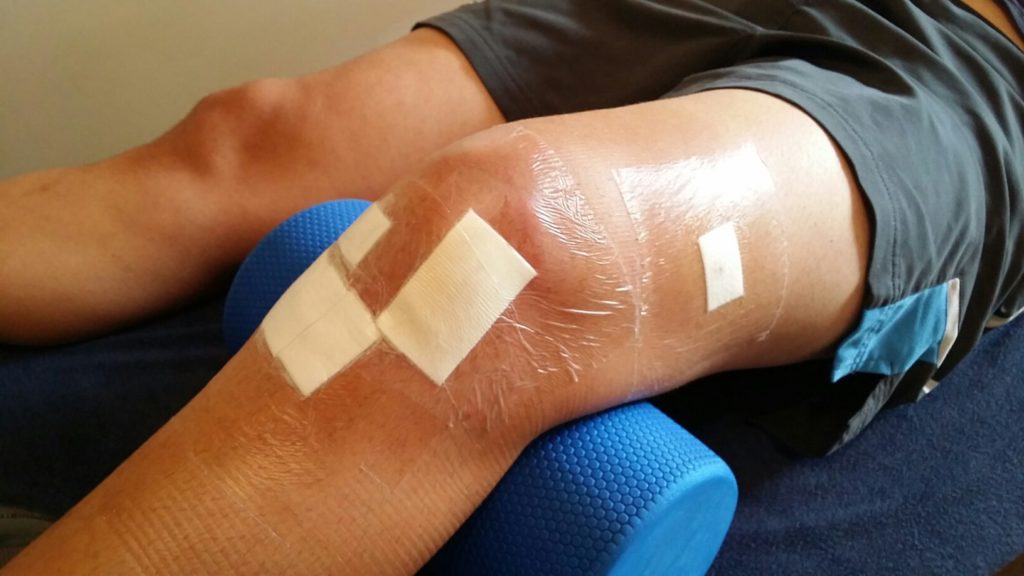Anterior cruciate ligament (ACL) injuries are a pain for athletes at the time they occur.
But they can create lingering problems, namely osteoarthritis, later in life, too.
Dr. Alex Brooks-Hill of Sea to Sky Orthopaedics is looking to bring the issue to the forefront for athletes in the corridor.
“If we can prevent ACL injuries and reduce the injuries in general, we can reduce osteoarthritis in the future,” she said. “Why we care so much about osteoarthritis is because if someone gets an arthritic knee, it may become stiff, painful and they can’t do all of the activities and sports that they love.
“(Many people) can’t enjoy daily life without pain.”
A new warm-up has been shown to dramatically reduce such injuries, and Brooks-Hill has been vocal about getting athletes to use it diminish their risk of suffering such a setback.
“As a young athlete, it’s hard to understand or get the concept of why it’s so important, but if we can change their injury profile at this stage, then we can actually change their life,” she said. “There’s a ton of research out there that’s showing that we can prevent ACL injuries. We can’t prevent them all, but we can have a significant impact on reducing the numbers.”
The major development is the F-marc 11+ warm-up, which was unveiled by FIFA in 2003. The program, which consists of 15 exercises, takes roughly 10 minutes to complete and is ideally slated into the first few minutes of a team’s practice in the case of soccer.
“It’s most effective when it’s incorporated to a program that already exists,” Brooks-Hill said. “It’s also actually been shown to be an excellent warm-up for getting you ready for drills or games.”
One key element of the program, Brooks-Hill stressed, is getting athletes to learn to land correctly, specifically eliminating knock knees. The program includes video training to show athletes how to come down from jumps in a safe manner.
“When you look at World Cup ski racers, the ones that have actually blown their knee, their knee has actually gone into what looks like a non-athletic position,” she said. “It’s about getting athletes to do the desirable motion over and over again so it becomes second nature.”
Strength and conditioning coach Maggie Phillips-Scarlett helped create the pilot project to implement the F-marc 11+ system back in 2011. The project featured 122 athletes in soccer and skiing in Pemberton, Whistler and Squamish. Organizers brought in health care professionals to present four seminars to the athletes early in the season and then kept an eye on their progress.
“We tracked them through their season,” she said. “What we learned most is speaking directly to athletes wasn’t that effective. A lot of the athletes weren’t high performance, so they weren’t really into it.
“What we learned from it is that we need to target coaches.”
According to the official F-marc 11 website, the warm-up has three parts: slow running and stretching with “controlled partner contacts;” exercises focusing on leg and core strength, balance and agility; and moderate-to-high-speed running with cutting and planting movements.
A 2008 Norwegian study found that teams performing the warm-up at least twice per week enjoyed injury reductions of between 30 and 50 per cent.
“Not everyone was doing it every single time,” Phillips-Scarlett said. “You need to do it minimum twice a week.”
With many of the coaches serving in a volunteer capacity and potentially not possessing vast injury-prevention knowledge, she said the initiative is that much more important. She added athletes should be supervised to ensure they are doing the exercises correctly.
“It’s easy to do. You just need to do it properly,” she said.
More information is available at f-marc.com.
Originally posted piquenewsmagazine.com March 31st, 2016
The Physiotherapists at Jubilee Sports Physiotherapy have a particular interest in sports injury management and preventative techniques. Over the years our Physiotherapists have developed close relationships with the best knee Orthopaedic Specialists and Sports Physicians in southern Sydney. Together with their extensive elite and local sporting experience, it has enabled a deeper understanding of the mechanics and latest medical science in the treatment and prevention of ACL injuries.
For further information regarding the management of an ACL injury or for an assessment to identify risk factors leading to an ACL injury contact Jubilee for an appointment.






















